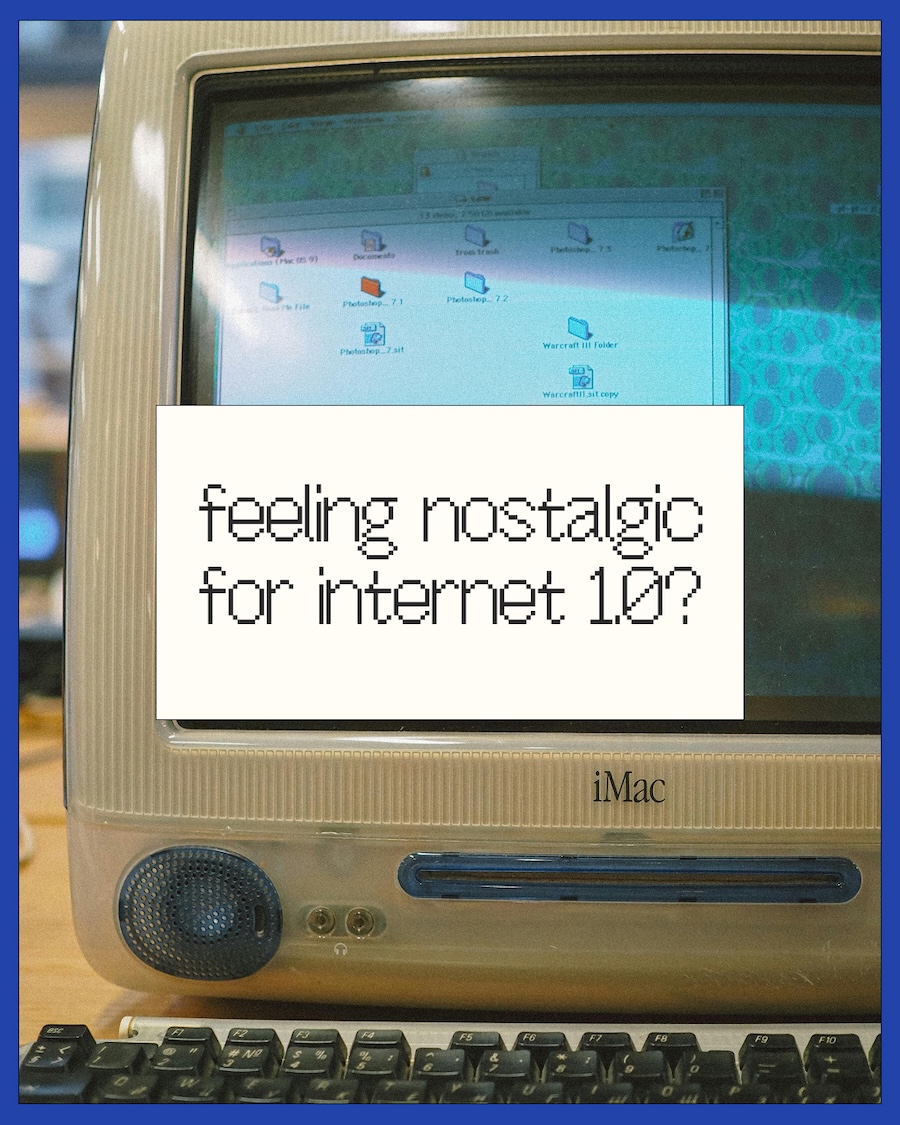The internet has gotten worse. Here's how to fight back against enshittification.

You may have heard the term "Enshittification." Made popular by Cory Doctorow, it refers to the process most tech platforms follow these days:
- Find a market to "disrupt."
- Operate at a loss, often bolstered by VC money, to drive out competition.
- Once they control that market, raise prices and offer less and less to continually extract capital and "growth," often turning the customer into the product by selling their data.
It's made the internet a much worse place and with the rise of AI slop, it's looking pretty bleak.
But we can deshittify the internet, too!
As someone whose whole job lives and dies on the internet, I can't follow my luddite fantasies of running off and living in the woods. So I've spent a lot of time thinking about how to resist what can sometimes feel like an inevitable slide towards a worse internet.
1. Create with intention.
With AI companies offering ways to create thousands of new blog posts in our sleep or generate a logo in 2 minutes, it feels like volume and speed are the only things that matter. But polls show that most users don't actually trust AI content and trust a brand or business less when they can tell their content is AI. Creating with intention and strategy is still a more effective way to forge a connection with your customers.
2. Consider our impact.
The environmental impact of the internet is something I never used to think about. The internet seemed like something intangible.
When you load a webpage, you're calling up the images, files, scripts, etc. that make up that page. The amount of energy that takes varies based on the size of the assets and files, and the number of and complexity of the scripts. When you're talking about running generative AI functions, that amount of energy jumps a LOT.
Everything is a balance. Sometimes, you need a large video file or a big image or to run a complex script! But considering the impact of these choices in the creation of your own website, as you manage your business online, and as an internet user can help us minimize our environmental impact.
3. Use UX for good.
User Experience (UX) Design considers a visitor’s journey through the website. It considers potential difficulties and confusion and seeks to provide solutions that make the journey through the visit seamless, efficient, and effective. Included in that is understanding the ways we make decisions, where the eye goes first on the page, etc.
Some websites utilize this to try to trick users into agreeing to privacy settings or getting them to cancel the un-subscription process rather than make it easy to unsubscribe. Those companies have prioritized their bottom line over the user's needs. And yes, good UX will help your business grow, but that should be a side effect rather than the goal.
4. Value sustainability over growth for growth's sake.
I'm not saying there's anything wrong with growing. Just not at the cost of delivering a sustainable, consistent service.
Eden Connelly Tallarico, of New Money Social Club, wrote about this better than I can:
"Slow business interrupts patterns of harm. Not only does it position you for more sustainable success in the longterm, it allows you to enjoy your business-building journey—feeling embodied, nourished, creative, and connected—every step of the way."
A lot of what's driving enshittification is the fact that growth is seen as the end goal for a lot of businesses (especially anything publicly traded). But growth for growth's sake doesn't have to be the end goal for your business or organization.
5. Transparency, Transparency, Transparency
Audience trust is down. The quickest way to build trust? Be transparent. Share with your audience. Whether that's sharing your pricing, spending some time on your privacy policy, writing a statement disclosing if and how your business or organization is using AI — be up front with your audience. Transparency builds trust by demonstrating that you trust that honesty will connect you with the right audience.
Keep your piece of the internet good.
There's not too much we can control, but how your organization or business lives online is one of them.
What do you think? How else can we resist the enshittification of the internet? Let us know. Or share with someone else who's fed up with the internet.
Sending good vibes amidst the slop,
Eleanor
founder, Good Foundations Studio
Further Reading / Sources:
Forbes: 55% Of Audiences Are Uncomfortable With AI—Are Brands Listening?
CX Dive: Customers don't trust AI, and the rift might be hurting business
New Money Social Club: Business Coaching is a Scam
New York Times: Can You Choose an A.I. Model that Harms the Planet Less?